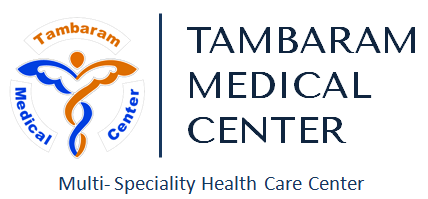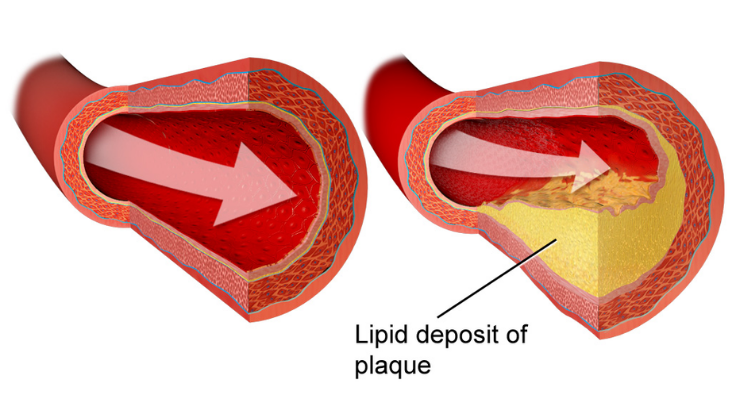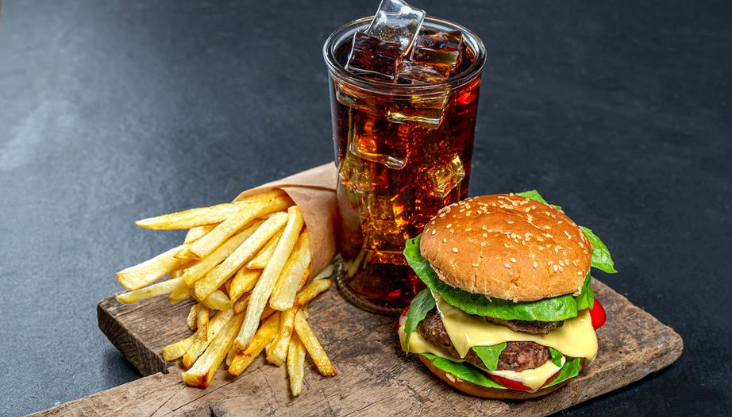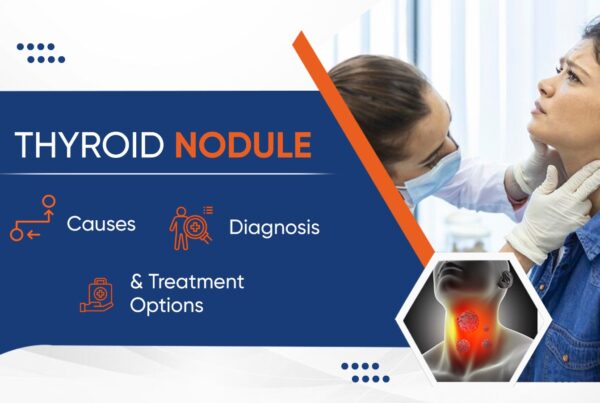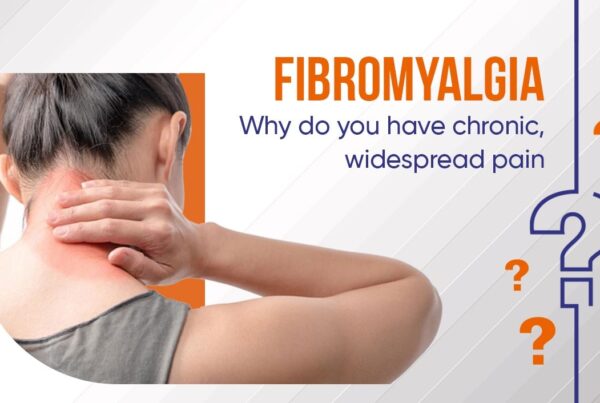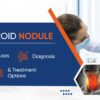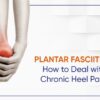Cholesterol – Symptoms, Causes, and Treatment
Cholesterol is found in every cell of the body but has important natural functions in food absorption, hormone production, and vitamin D generation. It originates from two sources. Your liver produces whatever cholesterol we need. It is also present in animal-produced foods.
When you get too much cholesterol in the blood, plaque can be produced when paired with other substances in the blood. Plaque adheres to the artery walls. This plaque accumulation is called atherosclerosis. It can contribute to coronary artery disease that reduces or even blocks the coronary arteries.
What is Dietary Cholesterol?
Meat, poultry, and wholesome dairy foods, For instance, all contain cholesterol, which is called dietary cholesterol. All these foods have a high concentration of fats. Such fats produce more cholesterol in your liver than needed. Tropical oils such as palm oil and coconut oil induce the liver to produce extra cholesterol.
What happens when the cholesterol level is increased?
As cholesterol level in your blood increases, so will the risk to your life. Elevated LDL, or not enough HDL, raises the risk of gradually building up cholesterol in the walls of the arteries that supply the brain and heart. It can mix with other materials to form a thick, hard deposit within the arteries. It can also restrict the arteries and end up making them less durable, a situation called atherosclerosis. If one of those blood clots restricts and blocks arteries, it may result in a stroke or heart attack.
The lipoproteins include HDL, LDL, and VLDL. They are a mixture of lipid and protein. The lipids are linked to proteins so that they would move through the blood. There are various kinds of lipoproteins that have distinct functions.
What are HDL, LDL, and VLDL?
HDL is high-density lipoprotein. It is named healthy cholesterol, as it brings cholesterol back to your liver from other areas of the body and they get removed from the body through the liver.
LDL refers to low-density lipoprotein. It can be termed “bad” cholesterol, as a greater, extent of LDL leads to plaque formation in the arteries. VLDL means low-density lipoprotein. Many people even call VLDL “bad” cholesterol as it causes a build-up of plaque in arteries. But VLDL and LDL are distinct; VLDL contains triglyceride and LDL carries cholesterol.
Causes
The main reason for high cholesterol is unhealthy dietary habits. Many types of meat, milk products, chocolate, bakery items, deep-fried, and highly processed contain saturated fat. Trans fat found in fried and processed food elevates your LDL cholesterol. Lack of exercise or little exercise will lower your HDL cholesterol. Smoking reduces HDL cholesterol and elevates your LDL cholesterol.
Genetics could also cause high cholesterol for individuals. Family hypercholesterolemia, for instance, is a hereditary cause of high cholesterol. Health issues and some medicines can also trigger them.
Your risk of high cholesterol is dependent on several things. When you get aged, levels continue to increase. It is less likely, younger individuals, particularly children, and teenagers can also have elevated cholesterol. Increased blood cholesterol levels run in households. Being obese raises your cholesterol levels. Some races can have an elevated risk of high cholesterol levels. If the oxygen-rich blood to the heart muscle is reduced or blocked, it causes angina or heart attack.
Treatment
It can be reduced by improvement in lifestyle, balanced food schedule, weight control, and daily exercise. If the improvements in the lifestyle regime do not reduce your cholesterol enough, you may have to take medication too.
A Harvard Health study described cholesterol-lowering foods. They are Oats, barley and whole grains, nuts, fruits like apples, grapes, strawberries, citrus fruits, eggplant, okra, beans, soy and soy-based foods, foods rich in fiber, vegetable oil like sunflower and canola, fatty fish like salmon, tuna, and sardines.
Statins seem to be the only form of cholesterol-lowering medications specifically associated with reducing the risk of cardiovascular attack or stroke. The American Heart Association, American College of Cardiology recommend statin therapy to support individuals with a heart attack, patients with high LDL cholesterol levels, and patients with type 2 diabetes.
Net cholesterol levels in adults below 200 milligrams per deciliter, mg / dL are considered safe. The Borderline is reading between 200 and 239 mg / dL. A 240 mg / dL and the above reading is deemed high.
High cholesterol can cause severe health issues and even death if left untreated. Nevertheless, medication can help you control this disease, and it can allow you to prevent complications in other cases. Ask a doctor to check the cholesterol levels and find out if you have elevated cholesterol. When diagnosed with high cholesterol, request treatment strategies.
Maintain good health behaviors and pursue your doctor’s approved course of treatment to reduce the risk. Eating a well-balanced diet, training regularly, and eliminating tobacco products can help you reach lower cholesterol and sustain them.
Men 30 and above and women 40 and higher, can have the cholesterol tested. Men and women aged 20 and above who have heart disease risk must have the cholesterol screened. Adolescents need screening in case they are taking specific medicines or having a solid history of high cholesterol in their household.
Like most people, the level of cholesterol consumed has only a small effect on the amount of circulating cholesterol in the blood. However, for some individuals, cholesterol levels in the blood rise or fall very firmly regarding the quantity of cholesterol consumed. The avoidance of cholesterol-rich foods may have a significant impact on blood cholesterol levels for them.
Exercise has the greatest influence on triglycerides and HDL, through raising it. Exercise has no impact on LDL unless paired with dietary adjustments and weight management. Before beginning an exercise plan consults with your doctor.
The American Heart Association, American College of Sports Medicine suggests people workout aerobically most days of the week. In fact, this type of exercise is repeated and requires the use of several muscle groups. Cycling, walking, elliptical machines, and step machines are a few examples of aerobic exercises.
